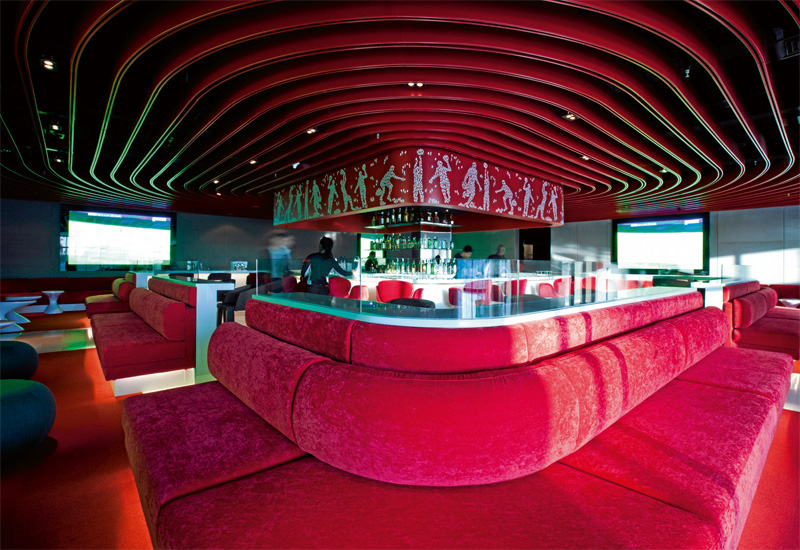The game plan
“The chefs in each of the restaurants have worked on a marketing plan for each outlet – we’ve tried to attract different people to the different outlets. There’s going to have to be some healthy competition between the restaurants because we can’t have them all leaning on the same customers.”
Tuttle agrees, adding that one of the most important considerations that was made when planning the outlets was to “create a story” for each – something allowing the guest to remember his/her experience.
An example he gives of this is for in-house guests that dine at Prime 68, the boutique steakhouse – which, again in the name of authenticity is headed by an American chef – who on retiring to their rooms for the night will receive a personally hand-written thank you card with a caricature of the team on one side.

| Advertisement |
“A “warm-fuzzy” is what we call it, because they think “wow, they walked all the way up to my room and slid it under the door, instead of just saying thank you as I walked out.” So we create these two or three things in every outlet to make those lasting memories,” Tuttle says.
While fine-dining in its truest sense of three – to – four hour meal sessions with silver and tablecloths has been excluded from the F&B concepts at the JWMM and there has been a big push towards more casual concepts, Tuttle says there is no reason you can’t have a bit of both.
Casual competition
“It’s all about how we deliver casual according to our guest expectations. You’ve got your casual – then you’ve got Prime 68 that is still casual in a way but it’s not pretentious where people feel out of place if they are in jeans. That’s the difference.”
Rebler agrees, adding that the casual sector is one that is very important to JWMM.
“I think casual is outweighing fine dining nine – to – one. I think the world is going for more casual, more approachable food, but that doesn’t mean it is pedestrian food – casual doesn’t mean average, or cheap or bad – there’s fun casual, luxury casual.
Pretty much you can show up to any restaurant in Dubai with jeans on, it could be designer jeans, how can you exclude that? There’s some jeans out there that cost more than a suit! I think we’ll live through a majority of those casual restaurants Velocity, La Farine – the casual bakery. Our banquets – we will have royal weddings – we have everything for that, but we also have the casual.
As a brand we are approachable luxury, we are not everything table cloth and everything silver.”
And while consumers opting for casual options has changed the way hotels offer food, so too has the rapidly emerging stand-alone restaurant market. Tuttle believes that this sector is now the biggest competition faced by hotel F&B outlets.
“Hotels that open now in Dubai have to look at it a little differently than they would have, even say three years ago, because you do have the Okkus and Zumas opening that are our competition.
That’s who we look at as our competition, we don’t look at other hotels as our competition because more and more of the Roberto’s of the world are out there and they are grabbing a certain amount of the market share – we have to look at the pricing strategy they use as they have a much more different pricing strategy than they do in a hotel,” says Tuttle.
Rebler says the way stand-alones are changing the market is phenomenal and believes hotels must converge to this trend to keep hold of their customers.
“I do think Dubai is the F&B hub of the Middle East. I had a meal last week and it could’ve been anywhere – New York, London – it could’ve been anywhere because it was so cosmopolitan.
Dubai International Financial Centre (DIFC) is a pole where F&B is really happening. We want to be a solution like DIFC where you have lots of different meal options.
We don’t want you to think of our outlets as hotel restaurants, they just happen to be in a hotel but we really have independent hats on when it comes to our restaurants.
Atul Kochhar’s restaurant is based in the hotel but it could just as easily be based in DIFC. There are many more freestanding restaurants now to compete against and I don’t think we look necessarily at every competitor being in a hotel – that’s just not how it works. Freestanding restaurants notch up the expectation in Dubai.”
Article continues on next page ...









 Search our database of more than 2,700 industry companies
Search our database of more than 2,700 industry companies









